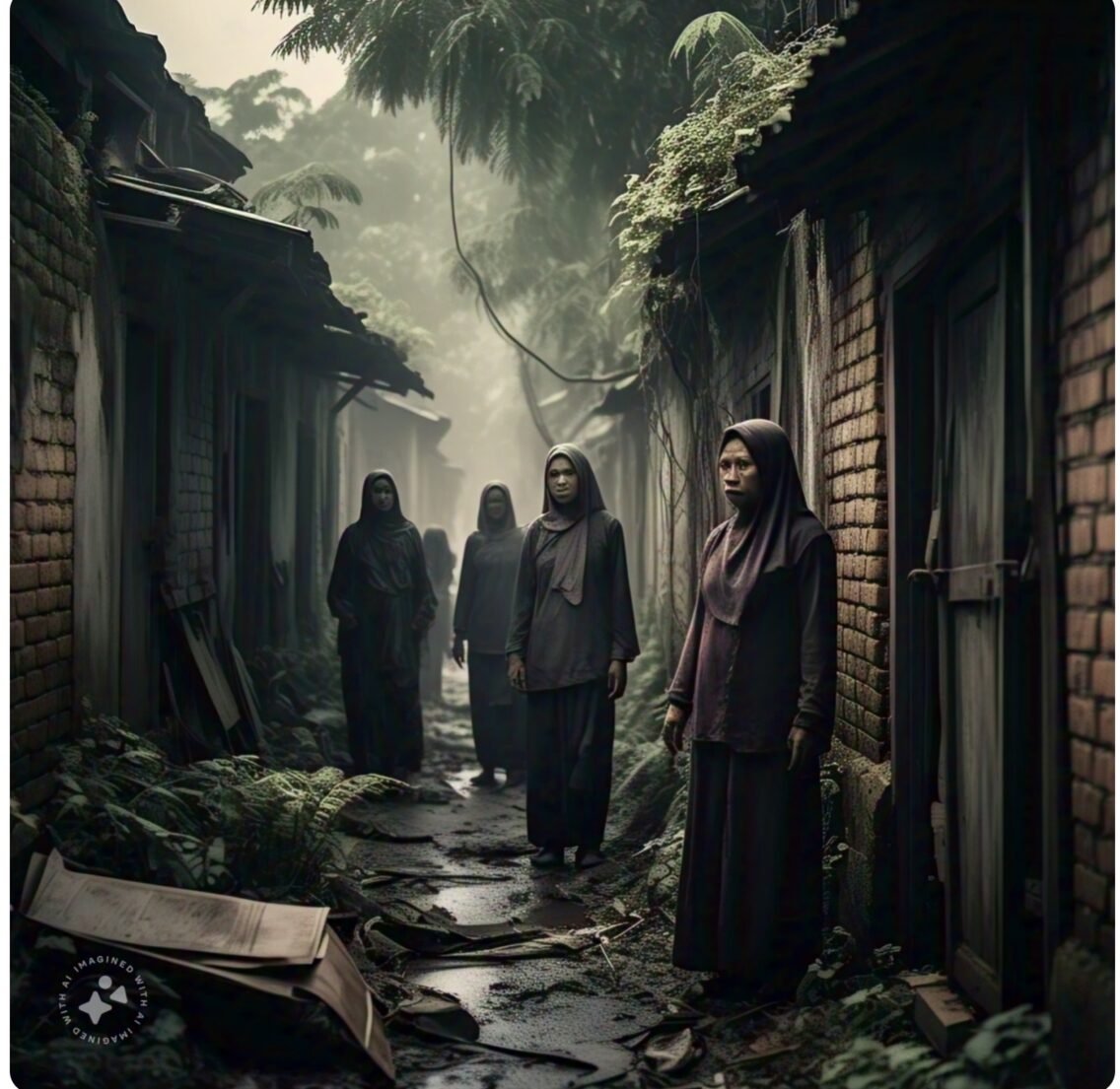Shadows of Kampong Ayer, Brunei

The night air was unusually still as I made my way across the wooden bridges of Kampong Ayer, the water village in Bandar Seri Begawan. My grandmother had warned me about staying out too late.
“Jangan sampai malam-malam di kampung ini,” she’d say sternly. (“Don’t stay out late in this village.”)
But I was 35, a grown man with responsibilities. I had just finished helping a friend repair his boat and was heading home when the quietness of the night began to gnaw at me. Normally, Kampong Ayer was alive with the sound of splashing water, distant conversations, and the occasional hum of a motorboat. Tonight, there was nothing. Only the faint creak of the wooden planks beneath my feet.
I pulled out my phone to check the time. 11:47 PM. Not too late, but late enough for the village to seem deserted. As I slipped my phone back into my pocket, I noticed something in my peripheral vision—a shadow darting across the bridge ahead.
“Siapa tu?” (“Who’s there?”) I called out, trying to sound braver than I felt.
There was no reply. My footsteps faltered as I approached the spot where I thought I saw it. The water below lapped gently against the stilts of the houses, but the air felt heavier, colder.
I quickened my pace, eager to reach my house. My grandmother’s words echoed in my head:
“Malam di Kampong Ayer ada penghuni lain.” (“The night in Kampong Ayer belongs to other inhabitants.”)
Just as I turned a corner, I heard it. A soft, melodic humming, coming from somewhere behind me. It was faint, almost like a lullaby, but it sent a chill down my spine. I stopped, straining to hear more clearly. The humming grew louder, closer, but no one was there.
My heart raced. “It’s just your imagination,” I muttered, trying to steady my breathing. But the humming didn’t stop.
I walked faster, almost breaking into a jog. The bridges creaked under my weight, and every sound seemed amplified in the silence. Suddenly, I felt it—a presence. You know that feeling when someone’s standing too close, even if you can’t see them?
I spun around. There was nothing. Just the dark, endless expanse of wooden walkways and stilt houses.
“Riduan,” a voice whispered, barely audible over the sound of my pounding heart.
I froze. No one called my name like that except my late mother. The voice was soft, familiar, but impossible.
“Siapa? Siapa tu?!” (“Who? Who’s there?!”) My voice cracked.
A figure emerged from the shadows, slowly, as if gliding. It was a woman dressed in a flowing white baju kurung, her face obscured by long, dark hair. Her feet didn’t touch the wooden planks. She stopped a few meters away, her head tilted slightly to one side.
“Riduan,” she whispered again, her voice carrying a strange echo.
I stumbled back, nearly tripping over my own feet.
“Stay away!” I shouted, my voice trembling.
She didn’t move, but her head tilted further, an unnatural angle that made my stomach churn. And then, she laughed. It wasn’t a joyful laugh; it was low, guttural, and wrong.
I turned and ran, my footsteps pounding against the wooden bridge. The laughter followed me, growing louder and more distorted. It seemed to come from everywhere at once, bouncing off the walls of the stilt houses.
When I reached my house, I slammed the door shut and locked it. My chest heaved as I tried to catch my breath. The laughter had stopped, but the air still felt heavy, oppressive.
I grabbed my grandmother’s Quran from the shelf and began reciting verses aloud. My voice shook, but with each word, the oppressive feeling lessened. After what felt like hours, the house grew silent. The air felt lighter, but I couldn’t shake the feeling that something was still outside.
The next morning, I told my grandmother what had happened. She listened quietly, her face grim.
“It’s the penghuni kampung,” she said finally. (“The village’s inhabitants.”)
“But why did it come to me?” I asked, still shaken.
“You stayed out too late,” she said, her voice firm. “They don’t like it when we wander at night. Next time, listen to your elders.”
I’ve never stayed out late in Kampong Ayer since. And sometimes, when the nights are especially quiet, I hear it again—a soft humming, drifting through the still air. But I don’t look back anymore. I don’t want to see what’s waiting in the shadows.





